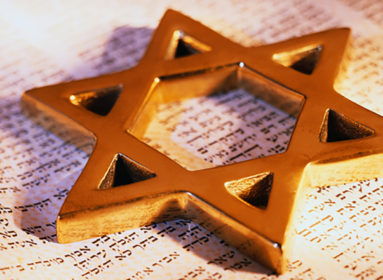By Rabbi Tzvi Hersh Weinreb
I have been blessed with many fine teachers. She was one of the best.
Her name was Mrs. Lachmann. She taught an advanced course in world literature at the college I attended. As the course progressed, it became apparent that it was not philosophy in general that was her sine qua non for great literature. It was one specific concept that mattered so much to her. That was the concept of ethical responsibility.
I can still hear her making the case that great writers of fiction portray their characters in light of whether or not they meet their responsibilities. “Several central questions are posed in all works of literature,” she would say. She would then proceed to list those questions:
“How do the heroes or villains of the novel define their responsibilities? Do they consider the long-term consequences of their actions? Do they feel accountable to others? To what degree is their sense of responsibility central to their personalities?”
I remember her remark at the end of her final lecture: “The theme of all great literature is the theme of responsibility.”
Over the years, I have come to realize that Mrs. Lachmann’s insight applies even more to biblical literature. Indeed, I am convinced that the theme of personal responsibility is the core theme of Sefer Bereshit, the Book of Genesis.
One example of the theme of responsibility can be found in a verse in this week’s Torah portion, Vayigash (Genesis 44:18-47:27), as explicated by Rashi.
In the story, Joseph finally revealed himself to his brothers. They journeyed back to Canaan and informed Jacob that Joseph is still alive. Initially, Jacob did not believe them. The verse then reads: “But when they recounted all that Joseph had said to them, and when he saw the wagons [Hebrew: agalot] that Joseph had sent to transport him, the spirit of their father Jacob revived. ‘Enough!’ said Israel. ‘My son Joseph is still alive! I must go and see him before I die.’”
Rashi wonders what it was about the wagons, the agalot, that convinced Jacob and revived his spirit. Rashi tells us that these wagons were a sign sent by Joseph to Jacob, recalling the subject of their learned conversation when they first parted ways so long ago. That subject is the ritual of the “calf [Hebrew egla] with a broken neck,” the details of which are described in the first several verses of Deuteronomy 21. Joseph was apparently confident that Jacob would see the connection between the word for wagons, agalot, and the word for calf, egla.
Agala calls to mind egla? What connection can there be between the ritual of the calf and Jacob’s parting words of instruction to Joseph before sending him off on his mission to his brothers, never to see him again until this moment?
To answer this question, we must reflect upon the meaning of the ritual of the “calf with a broken neck.” It is a ritual that is performed by the elders of the city nearest to a discovered murdered corpse, whose murderer is unknown. The elders must wash their hands over the calf whose neck was broken and declare that they did not shed this blood.
The Mishnah asks, “Can we possibly suspect the elders of the city of murder?” The Mishnah answers that they must declare that they did not allow the victim to pass through their city unfed, nor did they allow him to depart their city without escorting him along his way.
The early 17th century commentator Kli Yakar understands this to mean that the elders must declare that they treated the victim decently and humanely. Had they not done so, they would be, however indirectly, responsible for the murder. Their failure to treat their fellow properly would render them responsible for his tragic end. The theme of responsibility for the long-term consequences of one’s interactions is the dominant theme of this ritual.
As the Kli Yakar explains, if the elders of the city are not hospitable to the wayfarers who frequent the city, the criminals who populate the environs of the city will assume that this wayfarer is of no import and they will therefore take liberties with him, even to the point of shedding his blood. Were these villains to observe that the wayfarer was significant enough to the elders of the city to be treated graciously, they would have refrained from harming him.
This is the nature of responsibility. The elders are not suspected of actual murder. But if they treat their guests improperly, they set in motion a process by which those guests are dehumanized, becoming easy prey to malicious persons. That is how far the demands of responsibility extend.
When Jacob sent Joseph on his dangerous mission, continues Kli Yakar, he escorted Joseph part of the way. By doing so, he was teaching Joseph the lesson of the “calf with a broken neck,” the lesson of the importance of escorting the traveler, thus demonstrating the human value of that traveler. Joseph signaled to his father that he learned that lesson well and knew the responsibility entailed in dealing with one’s fellow.
Jacob realized that it was Joseph who personally had a hand in sending the wagons of Pharaoh, thereby escorting his brothers part of the way back to Canaan. Jacob took note of those wagons and therefore knew that Joseph had learned that a minor gesture of considerate behavior to others may have long-term consequences. He signaled that he had learned the crucial importance of taking responsibility for all one’s actions, however insignificant they may appear. And so, “The spirit of their father Jacob revived.”
Agalot and egla are not just words in a linguistic game. Rather, they allude to the profound lesson about personal responsibility.
Rabbi Tzvi Hersh Weinreb is the executive vice president emeritus of the Orthodox Union.








 Southern New England Jewish Ledger
Southern New England Jewish Ledger














